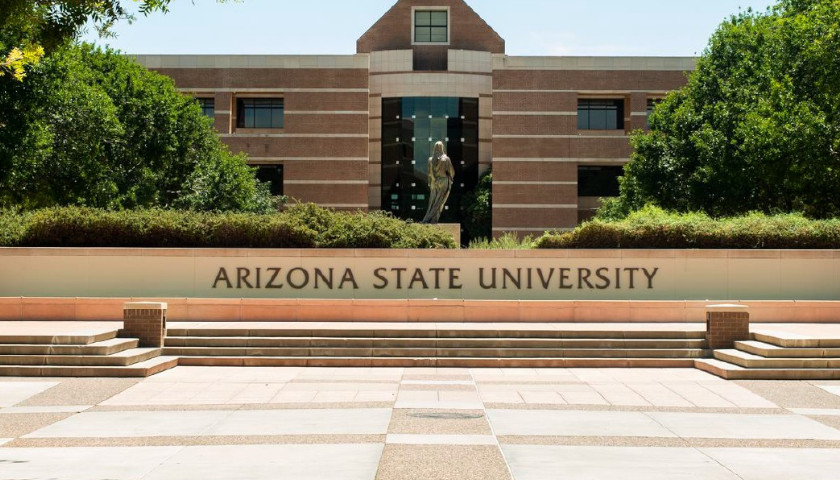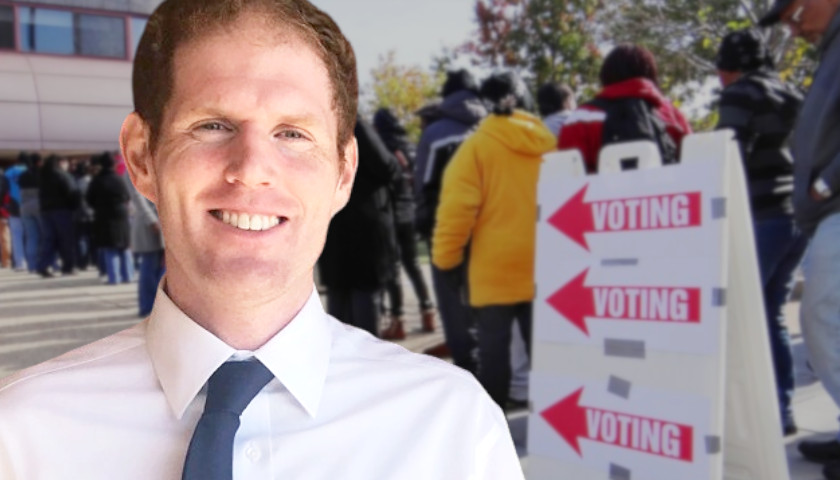Arizona State University’s School of Social and Behavioral Sciences, known for its Social Justice and Human Rights degree program, recently hosted a book talk titled “The Politics of Perverts.” The event was sponsored by the university’s faculty and attracted attention for its exploration of non-traditional sexual orientations and practices.
A mid-April post on X by the School of Social and Behavioral Sciences stated, “Tired of those limited binary perspectives in research and politics? Join us and the Global Human Rights Hub this Thursday as we welcome Charles Anthony Smith and Connor Strobel to discuss their new book, ‘The Politics of Perverts.'”
Published by NYU Press, the book focuses on the politics of those with “non-traditional sexual orientations and practices, such as Polyamory, BDSM, the Furry Fandom, Nudism, and the large bisexual population within these communities,” and the “discrimination, stigma, and lack of legal protections” they face.
Arizona State University’s (ASU) School of Social and Behavioral Sciences offers a Bachelor of Arts in Social Justice and Human Rights that teaches students about activism and racial and gender ideology.
The 2024-2025 Social Justice and Human Rights catalog includes a course called Race, Gender, and Class. This course focuses on “the intersections of race, class and gender in culture and society.”
In the Sociology of Gender class, students examine “how society influences perceptions of difference and identity within institutions and interactions.”
Arizona State Representative John Gillette (R-Kingman) called out the universities and the Biden Administration’s student loan forgiveness measures on Tuesday in a post on X. “These universities are a waste of tax dollars,” he said, and added, “The bigger waste is Biden’s student loan forgiveness. All are charged to taxpayers. Defund the corrupt education cabal of ‘higher learning.'”
Other areas of study focus on race, LBGTQ issues, and activism, such as the Race and Sexualities in Social Justice Movements course. Students learn about “queer communities, social control and political resistance” while also examining “responses to trauma/violence, heteronormativity, and variants of institutionalized racism and sexism…” with “special attention to race and sexuality intersections as well as the politics of coming out, LGBT activism, antiracist movements, the role of allies, and social movement strategies.”
Grassroots Social Movements “[e]xplores how groups mobilize collectively to produce social, political, economic and cultural change, with an emphasis on the United States.”
Additional course offerings in the ASU program include Women, Power, and Politics and Gender, Madness and Justice.
Several classes, such as Everyday Forms of Political Resistance, omit a course description other than indicating “topics of immediate or special interest to a faculty member and students” will be studied.
Heather Smith-Cannoy is the interim school director and professor in ASU’s School of Social and Behavioral Sciences. According to the program description, “The coursework prepares students to serve as advocates for alleviating political, economic and social inequality.”
Tuition at ASU for Arizona residents is approximately $11,000 a year, while the cost for out-of-state residents is upwards of $30,000 annually. Online tuition is estimated at $7300 a year.
Completing the degree’s 120 credit hours of coursework is expected to take four years. However, ASU’s accelerated program allows students to obtain a combined bachelor’s and master’s degree in less than five years.
Not considered one of the university’s most popular majors, ASU’s compilation of employment opportunities for students who graduate with a bachelor’s degree in Social Justice and Human Rights shows that more than half of the potential careers listed for the degree holders pay a median salary of less than $50,000 per year.
ASU has had pushback against its focus on social justice. In late March, philosophy and religious studies professor Dr. Owen Anderson sued ASU for its diversity, equity and inclusion (DEI) policy that demanded mandatory training for faculty.
– – –
Debra McClure is a reporter at The Arizona Sun Times and The Star News Network. Follow Debra on X / Twitter.
Photo “Arizona State University Sign” by Arizona State University.








